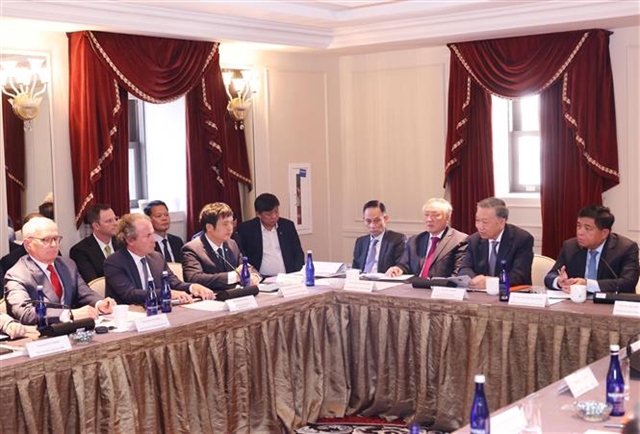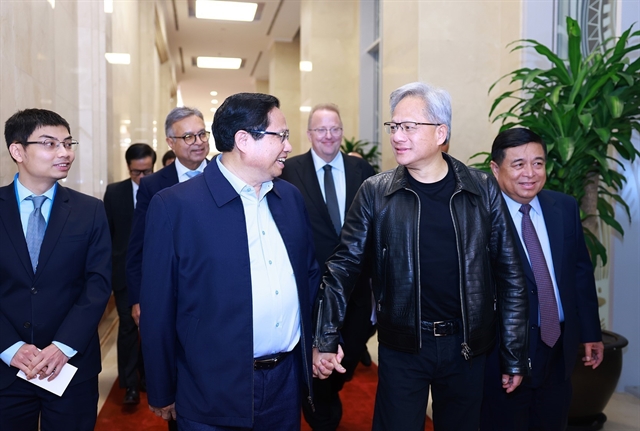 Politics & Law
Politics & Law

 |
| Prime Minister Phạm Minh Chính and CEO of Nvidia Corporation Jensen Huang. — VNA/VNS Photo |
HÀ NỘI — The Government has issued a decree allowing support of up to 50 per cent of initial investment costs for businesses engaging in semiconductor and AI research and development (R&D) projects.
This support is outlined in Decree 182, which was recently enacted to establish, manage and implement the Investment Support Fund.
Under the decree, businesses eligible for support must have no tax or budget-related debts. Their R&D investment projects must positively impact the innovation ecosystem and contribute to the development of groundbreaking technologies and products for Việt Nam.
The R&D centre projects must also align with the list of prioritised high-tech industries and require a minimum investment capital of VNĐ3 trillion (US$117.78 million), with at least VNĐ1 trillion disbursed within three years of receiving the investment decision.
Beyond the exclusive support for semiconductor and AI giants, other tech enterprises are also eligible for general assistance. These include high-tech enterprises, firms with high-tech product manufacturing projects and those investing in R&D centres or applying advanced technology.
General support includes funding for training and workforce development, R&D costs, fixed asset investments, high-tech product manufacturing and infrastructure development. Other cases are decided by the Government.
The Investment Support Fund is a national fund managed by the Ministry of Planning and Investment. It is tasked with receiving, managing and using the State budget and other legal resources to provide financial aid to businesses.
Before this decree was introduced, Việt Nam missed out on several investment projects from global giants.
In a 2024 report on drafting the decree, the Ministry of Planning and Investment revealed that numerous major corporations had looked into investment opportunities in Việt Nam but shifted to other countries due to the lack of specific regulations.
Some large-scale high-tech projects also stalled, awaiting policy responses, and paused new investments or expansions in the absence of suitable support measures. For instance, LG temporarily suspended its plan to invest in a new $5 billion electronic device manufacturing project. — VNS




